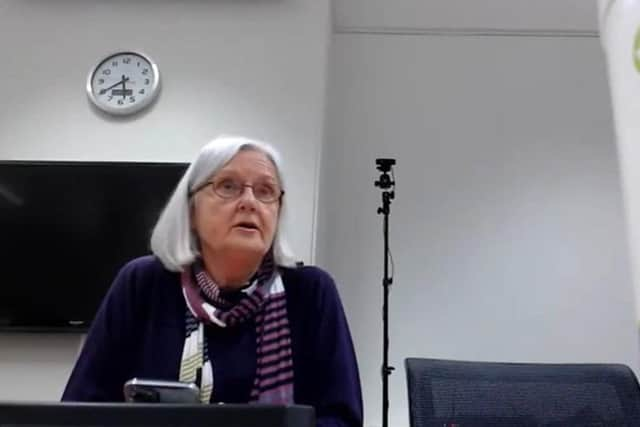York woman could be banned from city council meetings for 'disruptive' behaviour
Gwen Swinburn, who often attends council meetings to comment on the council's governance, was sent a letter on February 12 accusing her of defaming a council officer by saying they ‘do not have a clue what they are talking about.’
Ms Swinburn was responding to a decision to make a letter exempt from being read out at the Joint Standards Committee on January 31, because a deadline was missed by the councillor who wrote it.
Advertisement
Hide AdAdvertisement
Hide AdFollowing the remarks, Coun Martin Rowley, who was chairing the meeting, asked Ms Swinburn to apologise.


When she did not apologise and refused to leave, security escorted her from the building.
A letter from the council’s director of governance Bryn Roberts to Ms Swinburn read: “You defamed a member of the City of York Council staff, refused to either withdraw your statement or apologise, and thereafter refused to leave the meeting until you were escorted out by the council’s security provider.
“Such behaviour is unacceptable and is disruptive of the lawful business of the council.”
Advertisement
Hide AdAdvertisement
Hide AdMr Roberts has recommended that the council refuse Ms Swinburn's attendance at any council meeting for three months.
The letter continued to read: “This recommendation is not made lightly, but given your history of failing to adhere to the constitutional requirements relating to public participation, it is considered necessary and proportionate in order to achieve the legitimate aim of ensuring that the business of the council can be lawfully transacted without interference.”
Ms Swinburn had until 5pm on February 19 to make further comments, but she did not.
Mr Roberts cited case law entitled R v Brent ex Parte Frances [1985] QB 869 to justify the recommendation in which it was said: “The purpose of giving the public the right to attend meetings is so that they can inform themselves of what is going on.
Advertisement
Hide AdAdvertisement
Hide Ad“They are not given the right to disrupt meetings and, of course, the right is not a right to participate in anything going on, merely to observe and hear what is going on.”
A City of York Council spokesperson said: "While we do not comment on individual cases, as a council we have a duty of care to all of our officers, who have no right of reply to the public, and we cannot and will not permit officers to be defamed without consequence.
"While there is a general right for members of the public to attend meetings, it is not an absolute right irrespective of their conduct, and where any member of the public has been ejected from a meeting for misbehaviour, it is entirely reasonable that the council reacts in a proportionate way to modify the behaviour of any disruptive member of the public."
The incident which was live streamed on YouTube has since been deleted from the recording.
Ms Swinburn said the council was “making a mountain out of less than a molehill.”
Comment Guidelines
National World encourages reader discussion on our stories. User feedback, insights and back-and-forth exchanges add a rich layer of context to reporting. Please review our Community Guidelines before commenting.
